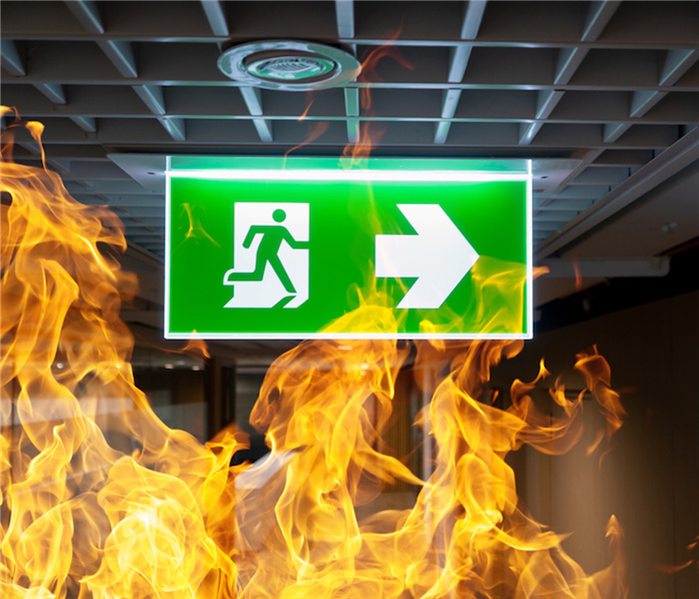How You Can Reduce the Fire Risks That Could Affect Your Business | SERVPRO® of Queen Anne’s, Kent and Caroline Counties
2/25/2020 (Permalink)
 If your business has experienced a fire, we’re here 24/7 to respond and begin restoration. Call us today to learn how we can help you.
If your business has experienced a fire, we’re here 24/7 to respond and begin restoration. Call us today to learn how we can help you.
Being aware of any potential threats to your business is a smart move as a business owner, and it is important that you consider emergencies in that category as well. Commercial fires can be extremely harmful for businesses, leading to permanent closures in the most severe of scenarios. However, by doing what you can in advance to reduce your risks and make sure you are prepared, you can reduce the likelihood of a fire occurring at all.
In order to provide a helpful reference guide, we have assembled the top fire safety tips that business owners should know. By understanding your codes, specific risks and how to prepare your staff, you can make big strides toward your fire safety goal.
Fire Safety Tips for Every Business Owner to Follow
Follow code guidelines and inspection schedules. The first step is to understand fire safety codes that the National Fire Protection Association has published for commercial properties to adhere to. These will cover the equipment you need, how often to inspect it and any other standards that should be followed for your business.
Identify your specific risks. Every commercial risk profile will look a bit different depending on the business, which is why determining your own specific business risks is so vital. Being aware of any equipment, chemicals or other things that are present that could increase your fire risk will help you make sure you are taking the proper precautions.
Create (and practice) a fire evacuation plan. Preventing panic when a fire alarm sounds is essential to getting everyone in the building safely evacuated. One of the best ways to do this is by making sure everyone is prepared by hosting regular fire safety drills with your staff. This way, when the alarm sounds for real, they will know exactly what to do and can remain calm.
Have regular fire safety seminars with staff. Helping your staff review the general fire safety guidelines of your building is a great supplement to regular fire drills. The location of fire alarms and extinguishers, as well as any special protocols, is useful knowledge that can help everyone who works in the building feel more prepared.





 24/7 Emergency Service
24/7 Emergency Service